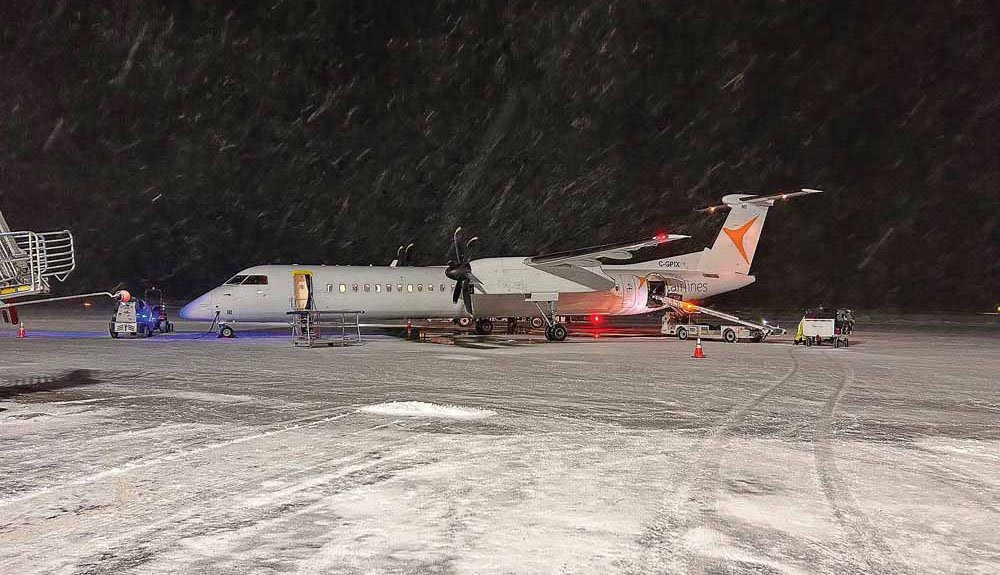PAL Airlines and Air Borealis

A snowy night at Deer Lake Regional Airport. Photo: Capt. Terry Burt (PAL Airlines)
At A Glance
Pilots joined ALPA: 2019
Number of pilots/flightcrew members: 154 PAL Airlines pilots and 49 Air Borealis pilots
Pilot bases: St. John’s, Nfld. and Labr.; Halifax, N.S.; and Montréal, Qué.
Headquarters: PAL Airlines—St. John’s, Nfld. and Labr.; Air Borealis—Goose Bay, Nfld. and Labr.
Operations: PAL Airlines and Air Borealis serve 29 destinations in eastern Canada.
Fleet: PAL Airlines—5 Dash 8-100s/-300s and 15 Dash 8-Q400s. Air Borealis—10 Twin Otters
Last year was a productive one for the two pilot groups. In late spring, Master Executive Council (MEC) leaders created a strategic plan to chart the course for the pilot group and identify key areas to promote member engagement.
Over the summer, Air Canada entered into an agreement with PAL Airlines to provide regional service in eastern Canada. This new flying sees PAL Airlines adding up to six additional Dash 8-400s. In the fall, Air Canada also expanded PAL’s operation with transborder services to both Boston, Mass., and Newark, N.J.
In January, the Air Borealis pilots ratified their first collective agreement. Unfortunately, the management team refused to sign the new contract based upon regressive concerns over language contained in the Training section. This issue was resolved with the assistance of a private mediator, and the group’s first collective agreement was ultimately signed and is now being implemented.
As PAL Airlines pilots prepare to open negotiations with management this year, the MEC remains steadfast in its resolve to improve compensation, scheduling, and working conditions. Pilot leaders are also focused on implementing and enforcing the language in the Air Borealis collective agreement.
PAL Airlines and Air Borealis, two divisions of the PAL Airlines Group, operate as separate carriers with their own operating certificates. However, for ALPA purposes, the two pilot groups are united under one MEC with two local councils based upon the airline.
